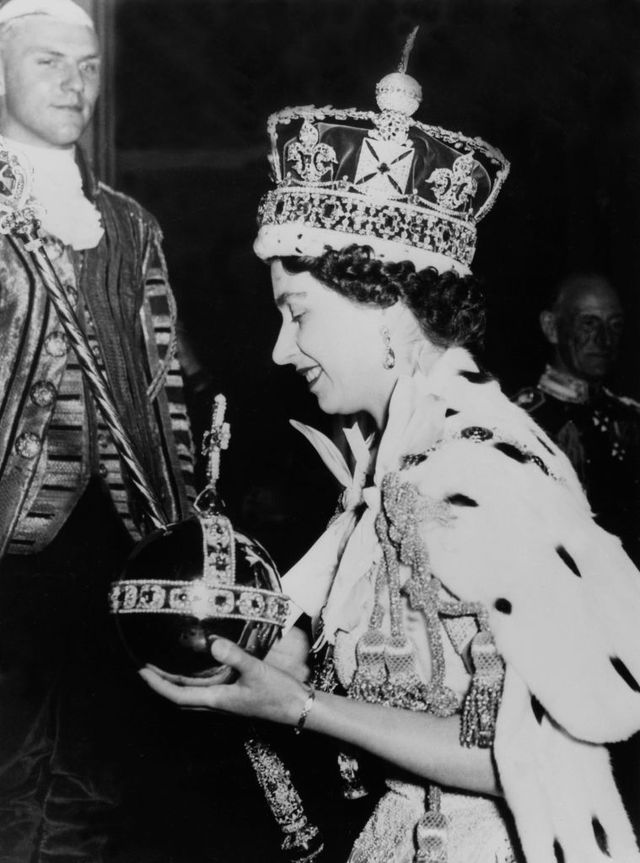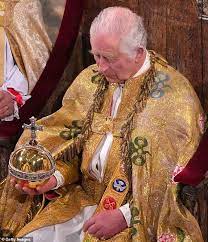In a recent article for Marketplace, an online economics newsletter whose content goes out to 800 radio stations across the US, with a reach of more than 12 million listeners, Dr Jason Lennard was asked to comment on the similarities between the state of Britain’s economy in 1953 for the coronation of Elizabeth II, and of 2023 for that of Charles III. With opinion polls appearing to show the public evincing rather less enthusiasm For Charles than for his mother, could the promise of a ‘better’ economy in the mid-20th century be the part of the reason?
June 2nd 1953, like May 6th 2023, was cold and wet. But, in 1953 for the coronation of Elizabeth II, the weather did nothing to dampen the spirits of the waiting crowds. Just eight years out from the end of World War II, it seemed to optimistic onlookers that the ceremony marked the dawn of a new, and more prosperous, era. On the surface, this optimism does not seem misplaced, 1953 marked the sixth year in a row of good economic growth – in fact, that year, economic activity exceeded the wartime peak of 1943.

Yet national debt still stood at more than 150% of GDP – an eye-watering figure that has not been anywhere near as high for decades. And austerity – used on and off in what is known as stop-go whereby fiscal policy would be loosened in the ‘go’ phase, for the economy to overheat, then tightened in the ‘stop’ phase – was still in evidence. However, 1953 was the beginning of a ‘go’ phase under Rab Butler’s expansionary budget where he cut both income tax and purchase tax and promised an end to the excess profits levy. The previous year he had raised the Bank Rate to 4%, cut food subsidies by 40%, reduced taxes, and increased both pensions and welfare payments resulting in an increase in foreign exchange reserves, but a depressed domestic demand.
Although the optimism of 1953 does not seem to have been entirely misplaced – sugar and sweets had just come off the ration and children up and down the country were discovering their sweet tooth – meat, bacon, butter, cheese and eggs were still rationed. In fact, the UK was the last country involved in World War II to end food rationing entirely in 1954.
The UK is certainly more prosperous today than in 1953, at least in absolute terms. Real GDP per capita (a measure of average income per person) has risen by a bit less than 2% a year on average which sustained over 70-odd years means that living standards have more than tripled.

The structure of the UK economy is also very different. The big loser has been manufacturing, which accounted for more than a third of GDP in 1953, but now contributes about a tenth. The big winner is financial services, which accounted for about a tenth in 1953, but now contributes more than a third, so there has been a reversal of fortunes between manufacturing and financial services. This is part of a general pattern where services have gained relative to agriculture and industry, from about half of economic activity in the 1950s to about 80% today.
There is a coincidence of inflation being more than 10% in 1952 at least and in 2023, but this is not related to the coronations. The more likely explanation, that is also common to both events is war, with the outbreak of the Korean War in 1950 and the Russian Invasion of Ukraine in 2022, both of which resulted in shortages and rising prices for key commodities.
Although it is difficult to quantify national morale and enthusiasm for the monarchy itself, it is estimated that 27 million people across the UK (of a population of 36 million) tuned in to watch Elizabeth’s coronation on the television. For the coronation of Charles, however, that figure is estimated to be 20 million (of a population 69 million). Of course, this does not necessarily reflect “economic malaise” or a sense that “things are unlikely to get better” – after all, the monarch is merely a symbolic head of state with little ability to affect the economy one way or another.
The original article can be read, in full, here.